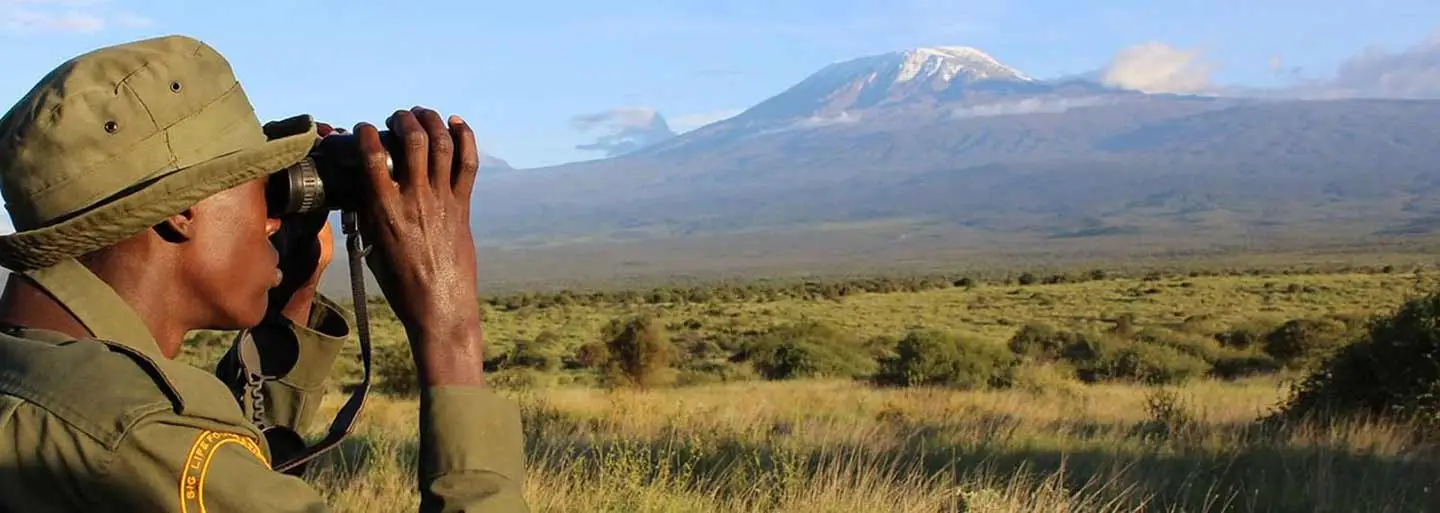Wildlife Resources

The Community-Based Landscape Connectivity Model: A Collaborative Approach to Secure, Protect and Sustain Kwakuchinja Wildlife Connectivity
This 2024 USAID Collaborating, Learning, and Adapting (CLA) Case Competition winner is about the USAID Tuhifadhi Maliasili (Preserve Natural Resources) project.

CONNECTing Wildlife and Wild Meat: USAID Conserving Natural Capital and Enhancing Collaborative Management of Transboundary Resources in East Africa
This case study showcases Conserving Natural Capital and Enhancing Collaborative Management of Transboundary Resources in East Africa (CONNECT) activity's efforts to raise awareness of the economic, intrinsic, and ecosystem-service value of living wildlife and ultimately mitigate poaching for the commercial wild meat market across Uganda, Tanzania, Kenya, and Rwanda.

CWT Fail Forward Regional Event: Session 2 Slide Deck
In Spring 2023, the USAID Combating Wildlife Trafficking (CWT) Collaborative Learning Group launched the Fail Forward video case competition.

CWT Fail Forward Regional Event: Session 2
In Spring 2023, the USAID Combating Wildlife Trafficking (CWT) Collaborative Learning Group launched the Fail Forward video case competition.

CWT Fail Forward Regional Event: Session 1 Slide Deck
In Spring 2023, the USAID Combating Wildlife Trafficking (CWT) Collaborative Learning Group launched the Fail Forward video case competition.

CWT Fail Forward Regional Event: Session 1
In Spring 2023, the USAID Combating Wildlife Trafficking (CWT) Collaborative Learning Group launched the Fail Forward video case competition.

Monitoring Wildlife Crime Cases: A Possible Approach to Reduce Corruption in the Justice System?
This practice note is based on interviews with 18 people who worked in or with justice systems in Africa, Asia, and South America, to understand their perception of the effect case monitoring can have on corruption in the justice system.

How Political Economy Analysis Can Support Corruption Risk Assessments to Strengthen Law Enforcement Against Wildlife Crimes
This practice note summarizes the value added and key insights of using two analytical approaches, political economy analysis and corruption risk assessment, to help natural resource management and conservation practitioners understand corruption risks in specific contexts and design and implement mitigation measures.

Internal Controls and Illegal Wildlife Trade: A Systemic Approach to Corruption Prevention and Law Enforcement Integrity
This brief highlights the importance and potential of robust internal controls in helping achieve the objectives of agencies tasked with protecting wildlife and the environment by identifying performance gaps and opportunities for improvement, enabling oversight, and fostering accountability.

Corruption in Community-Based Conservation: A Synthesis of Lessons
This TNRC Topic Brief examines the key design features of Community Based Conservation (CBC), focusing on the impact of corruption in the establishment and operation of CBC projects, to draw out lessons for conservation and NRM practitioners.

Pathways for Targeting Renewable Resource Corruption: A Summary of Evidence
This brief summarizes empirical evidence and learning from research led by the U4 Anti-Corruption Resource Center as part of the five-year, USAID-supported, Targeting Natural Resource Corruption (TNRC) Project.

Guide to Conducting Corruption Risk Assessments in a Wildlife Law Enforcement Context
This guide is a high-level “how-to” for carrying out a corruption risk assessment in a conservation law enforcement context, using the Map, Characterize, Assess, and Recommend (MCAR) approach designed by the Basel Institute on Governance.

Conducting a Corruption-Oriented Situation Analysis for Conservation Work: Guidance From Experience
This guide explains how conducting a corruption-oriented situation analysis can help conservation and natural resource management (NRM) practitioners understand and respond to the threats that corruption poses to conservation and NRM outcomes.

The Open Government Partnership and Anti-corruption in Conservation: Templates for Collective Action
The Open Government Partnership (OGP) is a collaboration of over 150 national and local governments and more than 1000 civil society partners working to promote transparent, participatory, inclusive, and accountable governance.

Corruption Risks and Anti-Corruption Responses in Sustainable Livelihood Interventions
Sustainable livelihood projects can be vulnerable to corruption risks that may contribute to further social and environmental damage.

KHETHA Fact Sheet
The KHETHA Program aims to halt wildlife trafficking impacts on flagship species in South Africa and Mozambique by building relationships between protected areas and communities, supporting law enforcement to stop wildlife trafficking and engaging all sectors to work together on the issue.

Combating Wildlife Trafficking Learning Agenda
To increase the effectiveness of commonly applied strategic approaches in Combating Wildlife Trafficking (CWT) programming, the CWT Collaborative Learning Group has updated its Learning Agenda originally published in 2017.

Interagency Cooperation New Practice Note: Webinar Slides
In 2022, Global Wildlife Program published a Guidance Note on the Lessons Learned and Good Practices in Strengthening National Inter-Agency Coordination to Combat Wildlife Trafficking.

Webinar Interagency Cooperation New Practice Note
The Global Wildlife Program (GWP)—funded by the Global Environment Facility and led by the World Bank Group—aims to promote wildlife conservation and prevent crime for sustainable and resilient development.

Integrating Environmental Protection and Social Inclusion when Designing and Implementing Energy Infrastructure Projects
This synthesis report highlights the state of knowledge on interactions between energy infrastructure and the environment.



